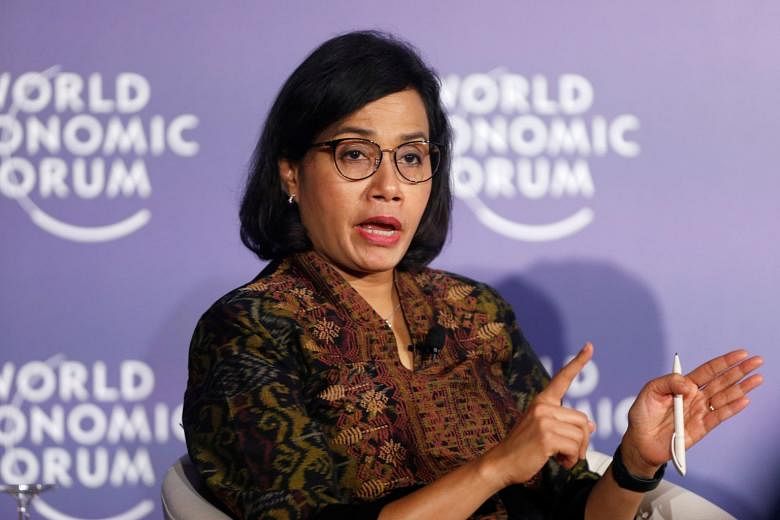HANOI - As the brewing global trade war threatens to erode gains made in fighting poverty, Asean must be sensitive to the needs of the "losers" of economic transformation in its bid to spur greater integration, said Indonesian Finance Minister Sri Mulyani Indrawati.
Speaking to The Straits Times on Wednesday (Sept 12) at the World Economic Forum on Asean - where she is a co-chair - Dr Sri Mulyani said that while the exchange of people, goods, technology and ideas is happening fast in a region benefiting from peace, sound macroeconomic policies and longstanding efforts to reduce trade barriers, the grouping's 10 economies remain at diverse stages of progress.
The most important task for Asean, she said, is to devise a platform "that can be seen by each member country to be a good platform for everybody to participate, to make (the) same progress, a strong progress towards prosperity".
As technology accelerates economic transformation and widens the gulf between the haves and have-nots, Asean will have to think about what kind of integration it wants and how it can be improved, she said.
"This is not just liberalising for the sake of liberalising, (or) reducing the obstacles on tariff or non-tariff barriers. We also have to learn from what is actually happening in advanced countries - that you also need to address the issue of the 'loser'.
"How and what kind of safety net would allow them to catch up, allow them to be able to then see that the benefit of this opportunity can be also enjoyed by them, even when they need to change?"
Thinking harder about this issue does not automatically mean that Asean members need to scale or slow down integration, she adds.
"We can still be making more progress but be extremely mindful about the consequence for those who… are left behind."
Mismanaging this aspect could in turn set Asean back. "With social media, that kind of feeling can be transmitted and become a sentiment that can damage the progress which is being made," she warned.
Looking beyond Asean, she fears that a trade war - now being stoked by tit-for-tat tariffs between the United States and China - could sow distrust and damage progress being made to combat poverty.
"In 2015, when many countries discussed about sustainable development goals, the world was very optimistic that we could and we should be able to reduce poverty almost (to) zero in our lifetime.
"And now this kind of optimism is going to be very difficult to be sustained," she said.
Sustainable development goals refer to a set of United Nations benchmarks like clean water, gender equality and quality education that were aimed to be achieved by 2030.
The former World Bank managing director, who in February won the Best Minister Award at the annual World Government Summit in Dubai, is not averse to making potentially unpopular decisions.
Earlier this month, in response to the record slide in the value of the rupiah, she announced that import taxes on more than 1,000 goods will be raised, to reduce the inflow of foreign goods and prop up the rupiah.
Indonesia's policymakers, she said, are still getting up to speed on what it takes to support new-economy entrepreneurs even as the country produces wildly successful start-ups like ride-hailing and digital payments firm Go-Jek - which launched its operations in Hanoi as Go-Viet on Wednesday (Sept 12).
"We are not pretending that we know everything. We learn from others. We adjust," she said.
"We listen, we engage and we communicate so that we are always going to be able to adjust the policy in a positive way."


